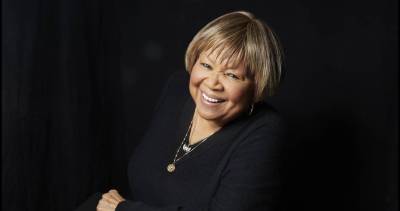"Homestay" VR film explores what it means to be an international student in Canada
Vancouverite Paisley Smith was studying film techniques at the University of Southern California when she first had the idea to make a movie about the exchange student who lived with her family.
Taro was 14 when he joined the Smith household. Sent from Japan as part of a program to learn in a Canadian school, the teen was academically gifted but quiet and spent his free time almost exclusively playing video games. Wanting to create a short using the technique of world-building—designing an environment before inserting the characters—Smith aimed to create a lighthearted project examining her brother and Taro’s shared love of gaming.
“It would be a fun story looking at how my mom was trying to get them out of the house,” she tells the Georgia Straight on the line from her adopted home of Los Angeles. “She would hide the video-game controllers and they would go looking around the rooms for them. So I thought, ‘I’ll make this story that revolves around these two young boys trying to get points around our home [like in a video-game], and then as you move through the story, I’ll reveal parts of Taro’s experience of being an international student, specifically.’ I thought it was an interesting idea.”
That semester, however, tragedy struck the family. Returning from a dinner reservation at a local restaurant, they discovered the door to Taro’s room was blocked. After gaining access through a window, they found his body.
“Taro committed suicide,” Smith recalls. “It was really shocking. I was in shock. My whole family was in an intense grieving period, and it was really hard to continue school. I was away from home, and it was really hard. I absolutely was not going to do that project, and I put it away for a while.”
Smith initially dealt with her grief by throwing herself into her work. She discovered a passion for creating virtual-reality (VR) experiences, and her filmmaking took her to Europe and back, with showcases including London’s prestigious Victoria and Albert Museum. Throughout her production, however, she found her mind wandering back to Taro, compelled by the idea that—as a gamer—he would have loved the burgeoning VR technology.
After much deliberation, she felt that her experience of Taro’s life and death needed to be told—both as closure for her own grief and to wrestle with wider questions around suicide. Joining forces with the National Film Board, she created a 15-minute virtual-reality story that explored what she imagined Taro’s experience of Canada to have been like. She named the piece “Homestay”.
“ ‘Homestay’ is a personal, documentary-style, interactive virtual-reality experience which places the viewer inside the Nitobe Memorial Garden up at UBC,” Smith says. “As they move though the garden, they interact with my own story of Taro’s death. They hear my experience of coming to terms with grief and understanding of suicide and trying to comprehend the experience of a young boy who’s living away from his family.”
The film is deeply creative and unequivocally moving. Using a game engine, Smith and producers from the NFB crafted a beautiful origami rendition of the UBC garden, folding trees and bridges out of white paper while blood-red leaves whirl around the viewer. As the individual watches, alone, the colourless garden grows around them—at first a single leaf, then a clearing, then a claustrophobic encirclement. Over the top, Smith’s measured narration tells the tale of Taro’s time with her family, probing at questions of whether love is universal and the chasms that can exist between different cultures.
“It was hard,” she recalls of the process. “There were a lot of times when I wondered why the hell I was doing it. But I was really fortunate to be working with the NFB—they were extremely supportive of me telling this story and gave me the freedom to find the best way to tell it. It definitely involved a lot of trial, error, and research to find the right way, so I was really lucky to be working with producers who understood before I did how hard it was going to be. When they took on this project, they knew it wouldn’t just be getting out the story—it would also be a journey for me.
“I learned that it’s okay to not know anything,” she continues. “It’s okay to be upset, and it’s okay to be really devastated by a loss. And your grief—you can move through it and you can understand it. And it probably won’t go away, but talking to people and sharing your experiences is a way of healing. And for me, it’s a necessary process, I think.”
“Homestay” will be shown as part of the Vancouver International Film Festival’s B.C. Spotlight series at Emily Carr University and the Hangar at the Centre for Digital Media, from Saturday to Tuesday (September 29 to October 2).
Follow Kate Wilson on Twitter @KateWilsonSays















Comments